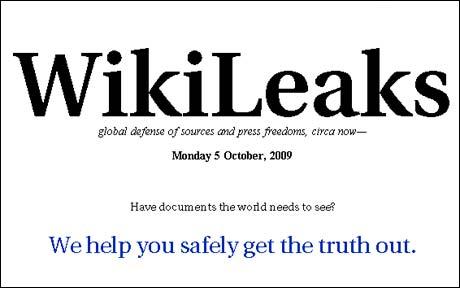- This information does not endorse any medicine as safe, effective, or approved for treating any patient or health condition
- cheapest Dalium order without prescription. You must talk with your health care provider for complete information about the risks and benefits of using rivastigmine patch
- buying online Accutane mail order without prescription
The Leaks and the U.S. Balkan Policy
By James George Jatras
Saturday, 4 Dec 2010

The revelations show the contempt for reality that characterizes our Balkan policy. Our leaders decided long ago that Bosnia and Kosovo are an example for our “friends” in the rest of the Islamic world. The facts that the Muslim leaders in Sarajevo and Priština are not “moderates” at all simply doesn’t register, because it conflicts with ideological certainties that are not open to reevaluation.
The leaks indicate serious disaffection within the U.S. government (State and Defense at least) with official policy, aggravated mainly by the deceit that justified the Iraq war but arising also out of a general cynicism about official representations of supposed U.S. “interests,” which are miles apart from what many Americans feel are our country’s true interests.
We’re talking mostly about naïve, idealistic, leftist cynicism here, based less on a solid knowledge of the real world than on a jaundiced imagination informed by images of government corruption popular in American movies, made infuriatingly real by the lies about Iraq and Afghanistan.
The leaks indicate that the U.S. government has at its disposal large amounts of very good intelligence reporting and analysis, yet almost all of it is completely disregarded in favor of preconceived ideological assumptions. Do we know that the Pakistani government and its ISI (military intelligence) are behind the Taliban? Sure. Do we know our wonderful Saudi friends are the main movers and financiers behind global jihad? Of course. But both countries are “stalwart allies in the war against terror” and “moderate pro-American Muslim states” because our leaders are stuck on the idea that American needs to be allied with Islam, a “tolerant religion of peace” that has been “hijacked by a handful of extremists.” We have tons of hard information that that view is just plain wrong. But it doesn’t matter. Ideology outweighs reality.
The WikiLeaks revelations show the contempt for reality that characterizes our Balkan policy. Our leaders decided long ago that Bosnia and Kosovo are “model Muslim democracies” and an example for our “friends” in the rest of the Islamic world. The facts that Bosnia is a majority Christian (Serb and Croat) country, or that the Muslim leaders in Sarajevo or Pristina are not “moderates” at all but are part of an Islamic re-conquest and neo-Ottomanization of the Balkans simply doesn’t register, because it conflicts with ideological certainties that are not open to reevaluation.
To that extent, the snapshot WikiLeaks provides into how U.S. policy is made, and will continue to be made, is very depressing. But it is unlikely to affect the Balkan region to a great degree in a direct sense. It seems most of this “dump” is not about the Balkans. Yes, there reportedly was the comment by French diplomatic adviser Jean-David Levitte to U.S. Assistant Secretary of State Philip Gordon during his visit to Paris in September 2009 that Vuk Jeremic is not the “modern face of Belgrade that he purports to be,” and that he “is doing nothing to encourage Serb return or participation in Kosovo's government.” This is pretty small stuff. Mr. Levitte works for the ferocious Serbophobe, French Foreign Minister Bernard Kouchner, who was the first head of the UN administration in Kosovo – and presided over the worst period of destruction of the Serbs there under the nose of NATO. So it isn’t surprising that anything less than total and absolute overt submission (as opposed to the current Belgrade government’s covert submission) to western diktat is unacceptable. Besides, Mr. Levitte was formerly French ambassador in Washington, which often results in the foreign diplomat becoming “more American than the Americans” – or maybe more properly, more State Department than the State Department.
